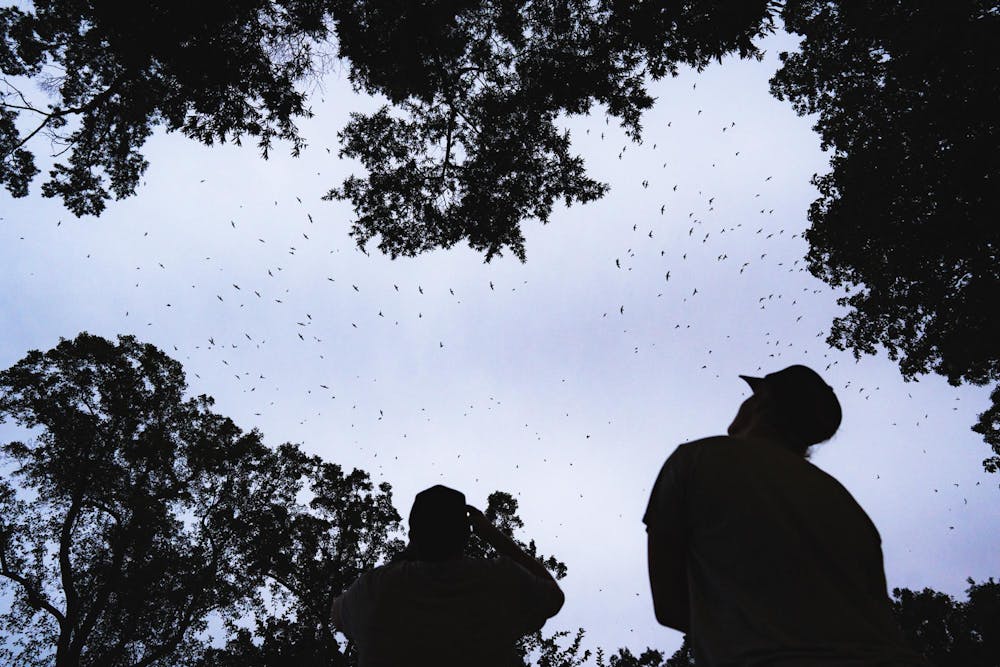On the evening of Oct. 2, community members gathered around the historic Davie Poplar on McCorkle place, eagerly awaiting thousands of Chimney Swifts, a type of small bird, to fill the sky. During the event, fittingly called “Swift Night Out,” people observed a phenomenon of many birds swarming around the tree.

A crowd gathers to watch the Chimney Swifts' flight on Wednesday, Oct. 2, 2024. Birdwatchers and passersby alike look on in awe.
Held by UNC’s Avian Society, the event included speakers and attendees hoping to share their love for Chimney Swifts with fellow bird enthusiasts. Member Sydney McLean said the roosting of the Swifts helped kickstart their love of birds, also saying the event is significant because Swifts typically aren’t found roosting in trees.
“Watching birds is very mindful, as well, super peaceful,” McLean said. “I mean, once you start [bird-watching] it's kind of like Pokemon Go for adults.”
Retired UNC biology professor Haven Wiley said that the Chimney Swifts have been sighted all over the eastern region of the United States for centuries, typically congregating during September and October.
Before roosting at the Davie Poplar just a few years ago, the birds could be found in chimneys all along Franklin Street. Chimneys are their usual roosting place and gave the birds their distinct name. Since then, many chimneys along Franklin have been removed due to new heating methods, causing the Swifts to find a different roosting place.
Wiley said that when roosting, the birds must attempt some “amazing sort of acrobatics” in order to fit thousands of birds into such small spaces.
“When they get inside the chimney or Davie Poplar, they have to stop and flip over because they grab the side of the chimney or the side of the cavity, where there are already hundreds or even thousands of other Swifts,” Wiley said. “They've got to find a place there and grab on the side of it, facing head up. So they have to come in and do a flip, find a place, and grab it all in literally a split second.”
UNC Associate Professor Keith Sockman said the Chimney Swifts create a unique shape when they roost, in comparison to other bird species.





